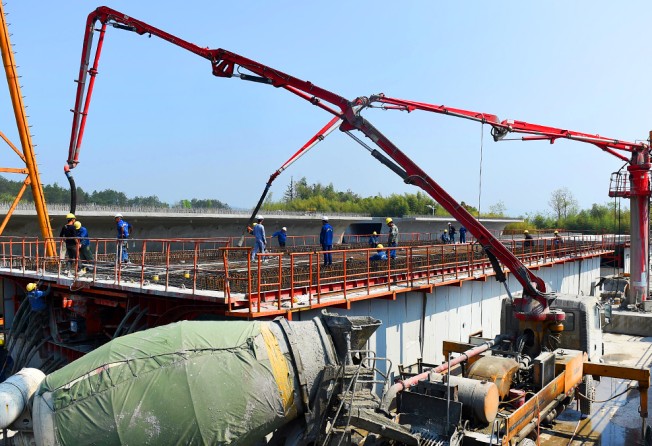Benefits of Hong Kong joining the AIIB outweigh any costs
Nomita Nair says it makes good sense for the city to be involved early on

The China-led Asian Infrastructure Investment Bank (AIIB) has been a hot topic in recent weeks following the flurry of countries signing up. Despite public discouragement from the US, China has won over American allies all over the world. Even Australia, where Tony Abbott was initially publicly against the AIIB, has joined the supporting ranks. Meanwhile, Hong Kong, although "actively pursuing" membership, has not yet joined, despite the many benefits of doing so.
The new institution, with a capital target of US$100 billion, will fund much-needed infrastructure projects across Asia, ranging from a new rail link from Beijing to Baghdad to port developments in Indonesia. It is positioned to be a "lean, clean and green bank", promising to meet the expectations for a 21st-century multilateral institution.
Taking an active role in the bank would significantly boost Hong Kong's global reputation as a business and finance hub. The AIIB has over 50 founding members, showing the growing importance of Asia in foreign policy. Membership would allow local Hong Kong banks to join fund-raising projects with other members, diversifying Hong Kong's financial activity beyond its focus on the stock market. Local construction, transport and engineering firms would also benefit in bidding for contracts in overseas projects funded by the AIIB.
So what are some of the reservations in Hong Kong and elsewhere for joining? The cost of membership is one of the main hurdles. For some smaller nations, unless they have a greater say in the governance and operations of the bank, they may not see the full benefits of this initiative.
As a general rule, infrastructure investment is also not a quick money spinner. Developing roads, bridges and power plants involves long lead times and financial projections that can never be guaranteed.
Yet, Hong Kong needs to take a long-term view. Projects that are structured well can turn into stable, revenue-generating assets that are very attractive to investors.
Some critics have voiced concerns about transparency and governance. The US National Security Council questioned whether the AIIB can meet "the high standards" of the World Bank and other regional development banks, particularly relating to governance and social safeguards. Countries that have joined, however, signal the confidence that the best standards in accountability, transparency and governance will be met. New members such as Australia have stipulated that there should be an independent board with no one country controlling the bank.
For Hong Kong, as is the case elsewhere, it is much better to be part of the bank and be involved in those discussions at an early stage.
It is also important for Hong Kong to demonstrate its commitment to regional development across Asia, especially given the pipeline of future Chine-led initiatives in this area. Aside from the AIIB, China has proposed a New Development Bank with its fellow BRICS partners and a Silk Road development fund to boost connections with Central Asia.
The AIIB will undoubtedly be a huge player to watch in the coming months, and all eyes will be watching to see whether it can meet its promises. For Hong Kong, the benefits and privileges should outweigh any reservations. Membership to this new institution will help Hong Kong take advantage of China's New Silk Road strategy, boost its international standing and increase its regional influence for many years to come.
Nomita Nair is a partner at Berwin Leighton Paisner